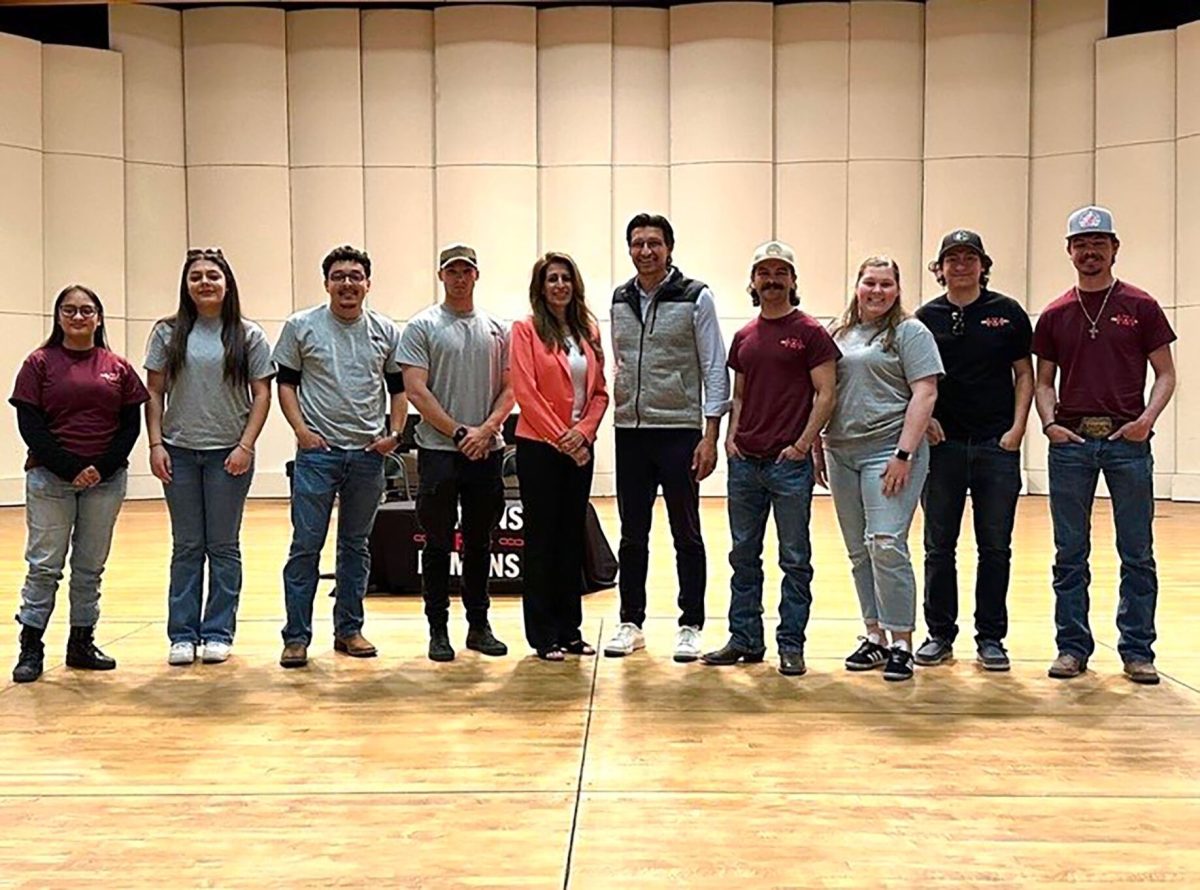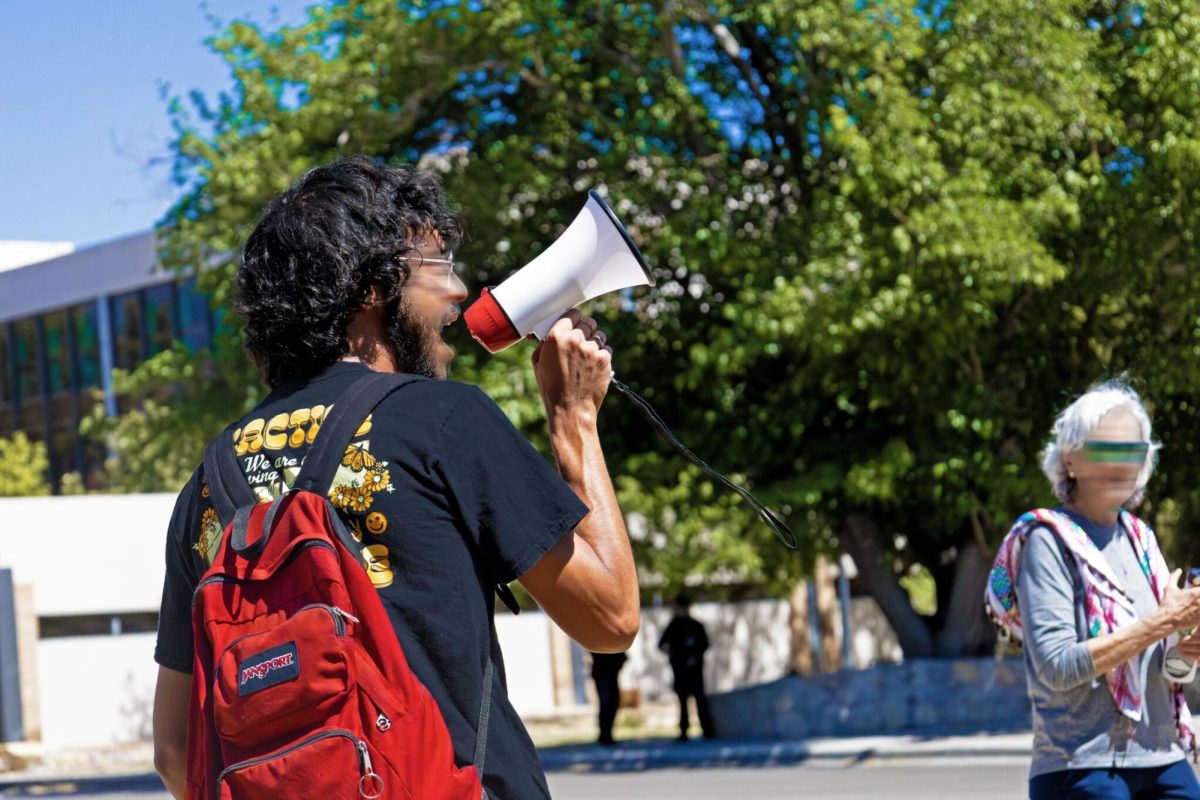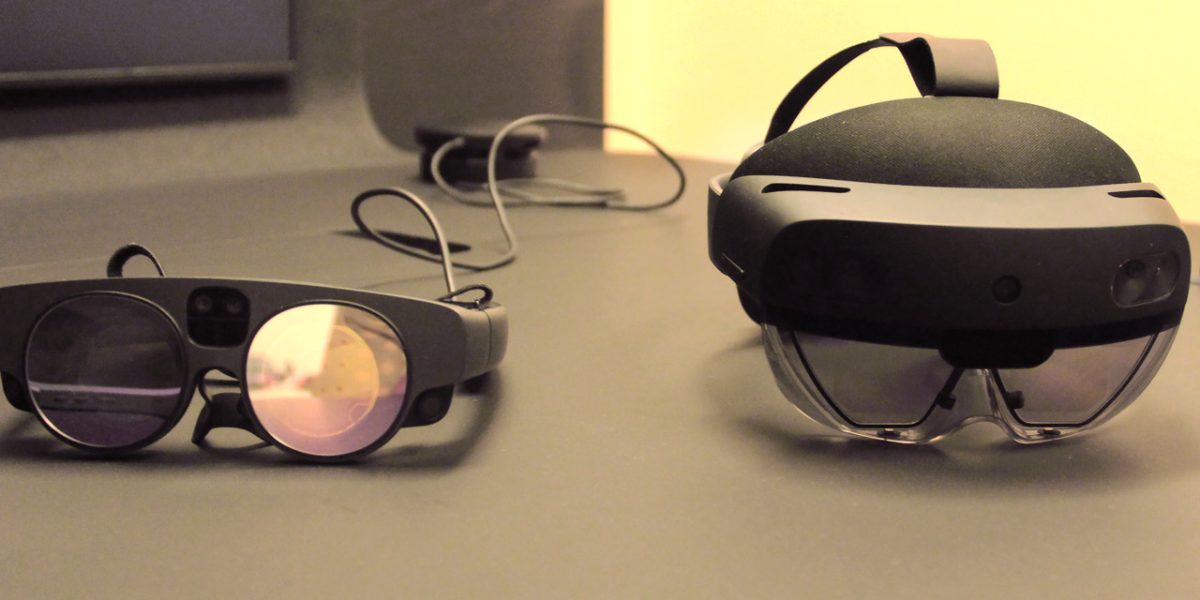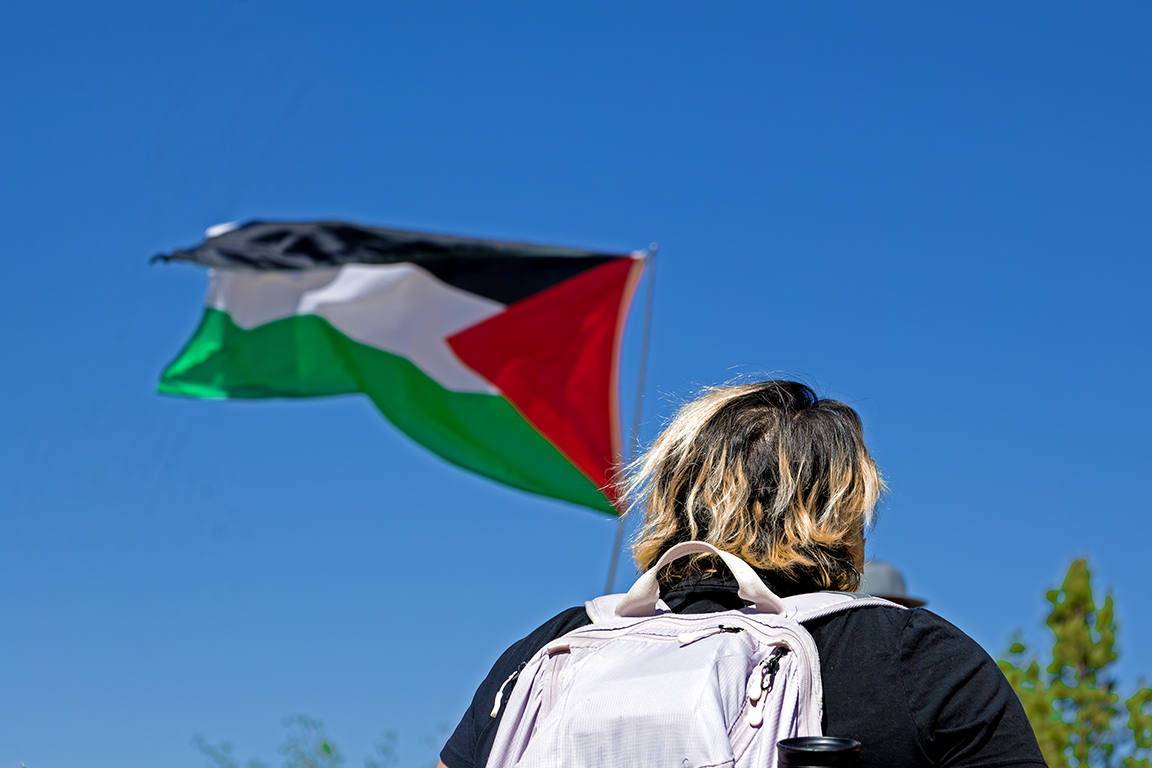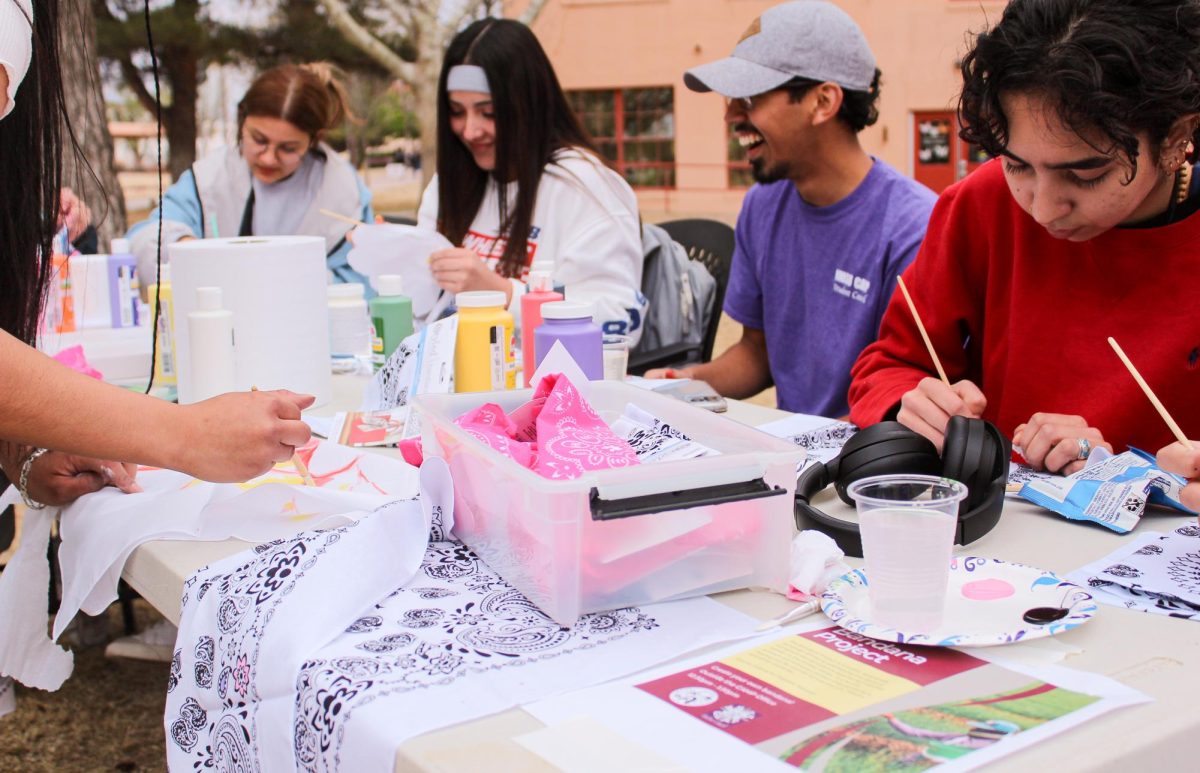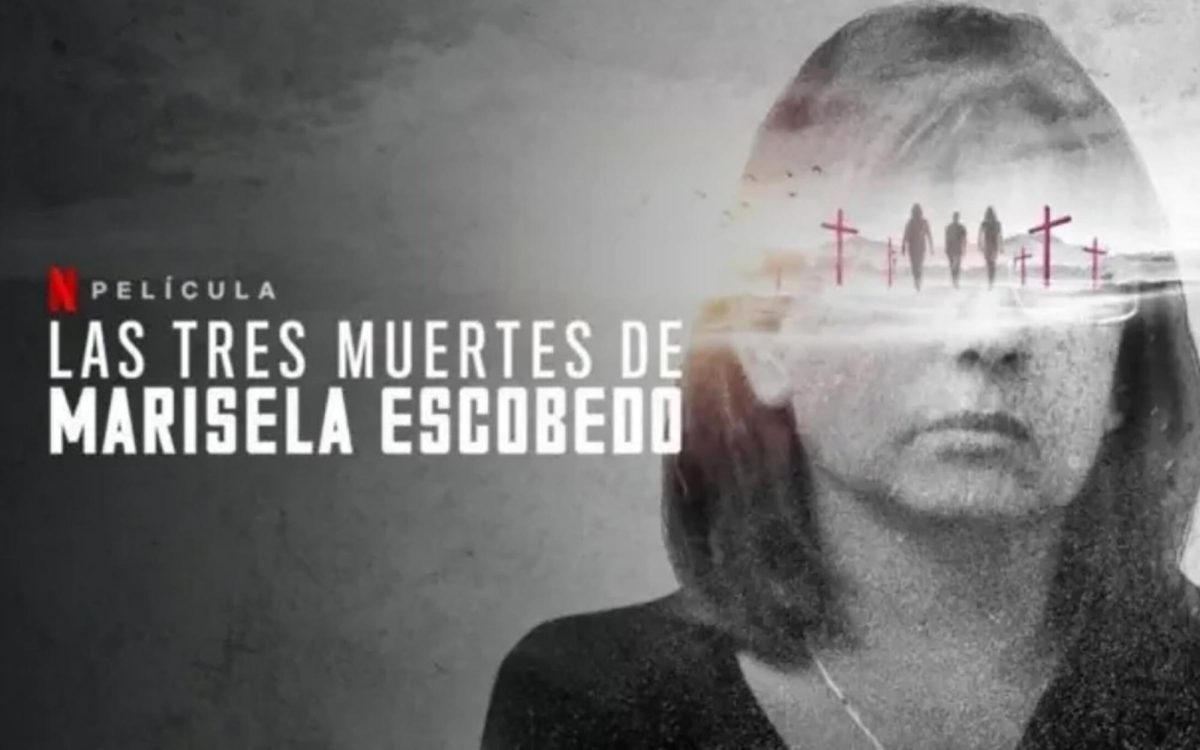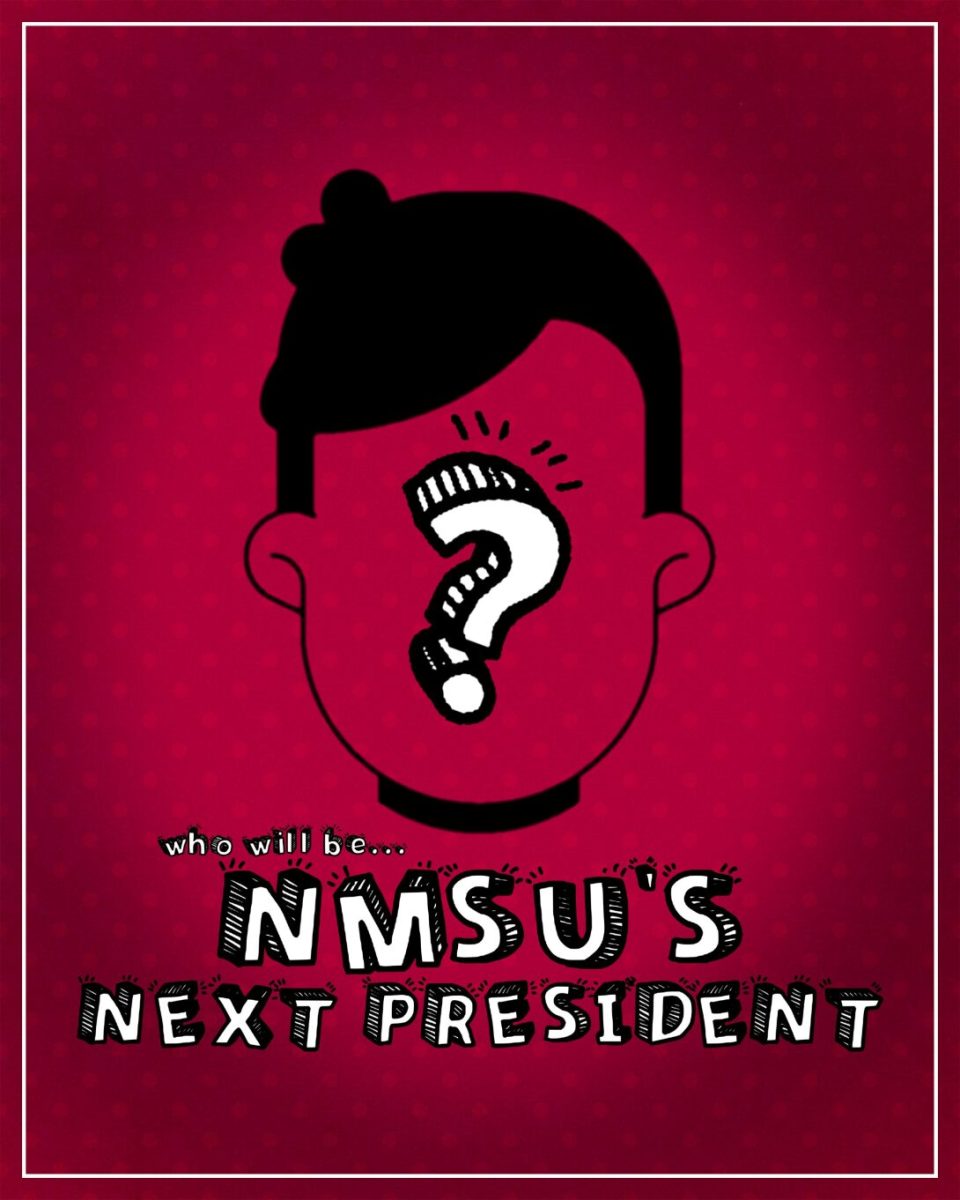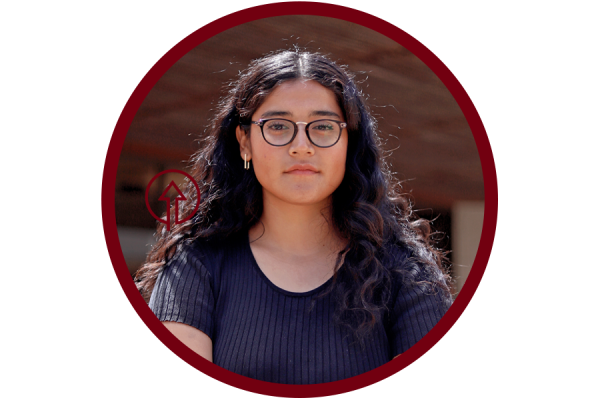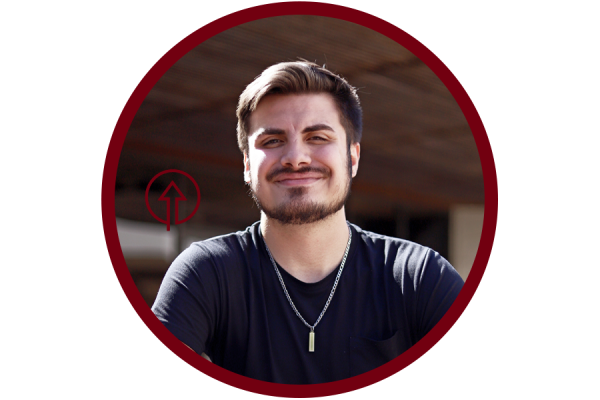On Thursday, April 4, the NMSU student organization, Humans for Humans (H4H) presented The Fight Against Human Trafficking: Save Our Children event where they exhibited many familiar scenarios. Some of which included accepting a friend request from a stranger, yielding to the societal pressure of drinking alcohol to impress someone “cooler” than you and remaining repressed in the face of family exploitation.
The student group is led by college assistant professor and former FBI Special Agent Ida D’Antonio-Hangen, who has a Human Trafficking investigation background. The event, featuring international speaker and human trafficking abolitionist, Jaco Booyens , was free and open to the public with the sole purpose of educating our community and raising awareness through volunteering and speaker series.
“I teach a human trafficking class and in that I tried to educate and make advocates of my students to become anti-human trafficking individuals and develop that passion in order to go out and educate others,” said D’Antonio-Hangen.
While the event spotlighted its student participants, the nationally recognized figure who started his journey 30 years ago took center stage following a candid introduction.
“It’s really a blessing to be here. It’s always good to be on this campus. I love this campus. I love your site. And we do a lot of work on the border,” said Booyens.
With gratitude and decisiveness, Jaco Booyens began by elaborating on the false impressions of the term human trafficking and all that this concept encompasses, including the short life of this label that is often misconstrued.
“That term didn’t become popular until 2015 in the US,” said Booyens.
Human trafficking is described as the coercion, transportation, harboring, or recruitment of individuals using force, deception, or coercion for the purpose of exploitation for financial gain.
This crime targets people of all genders, ages, and backgrounds globally. Traffickers frequently employ violence, fraudulent job agencies, or false promises of education and employment opportunities to manipulate and control their victims according to the United Nations.
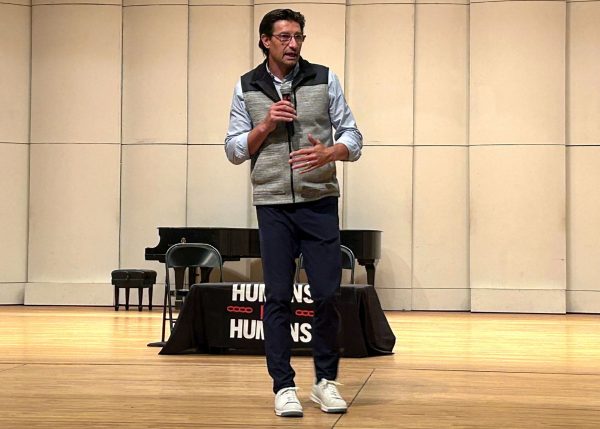
“Most of you would think human trafficking equals someone who was taken. The movie Taken, if you saw it, did not do us favors because it’s a misconception of what human trafficking is,” said Booyens. “It’s a component; it’s like me telling you that food is Burger King… and we say well that all food is Burger King, and you would say well, no. I like Italian food, and then someone else said Robert sushi is good too. I’ll have a steak and I go: no! food is Burger King. Human trafficking is not one thing.”
Although there are many forms of human trafficking, it is important to understand, through verified and quantitively data, this issue. Booyens delved right into the topic presenting nightmarish testimonies, including his own.
“My story started fighting human trafficking when I was 18,” shared Booyens. “One day she’s there the next day she’s not, it’s dinner –it took us six years to find her. You’re 18 in 1994 way before your time. The word human trafficking is not even an important phrase.”
Booyens elaborated on how his family and himself worked incessantly for six years to solve a case that was deemed “cold.” He shared that although the authorities wanted to label his sister as a runway, she had a good life at home.
“She’s an athlete, she’s a singer. She’s amazing,” said Booyens. “Then six years later by God’s grace, I’m there and we rescue her. So, this is real. For me and my family. This is not a cause that I thought was a noble cause. And it’s nothing wrong with picking up cause – but for me, it’s not a noble cause– for me, this is my story.”
Booyens emphasized the importance of understanding a simple yet complex concept. There is a supply because there is a demand. The demand is thus created by the alarming number of US consumers.
He also touched on the desensitization of the word and action that society currently faces along with more modern threats humans face now in this digital era, especially children and young adults’ vulnerability.
“The misconception is that it is a foreign problem, and it is not – Globally, there are $152 billion spent on selling women and children,” shared Booyens. This would mean 1.7% of total trafficking occurs within the country.
According to Booyens, Nike, Adidas, Reebok and Under Armour’s annual GDP combined does not come close to the money made by human traffickers in the US alone. “$52 billion a year, with a B. $52 billion tax free,” he explained.
The event was sponsored and hosted by Humans 4 Humans, La Pinon, and NM Crime Victim Reparation Commision. Humans 4 Humans is a student-led initiative at New Mexico State University, particularly serving students in the Department of Criminal Justice.
It’s dedicated to combating human trafficking through legal means while also preparing students for careers, emphasizing leadership and trafficking prevention. Presently, their primary focus is on increasing awareness about human trafficking.


